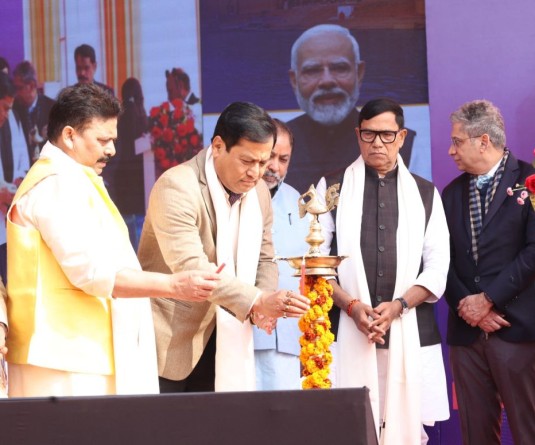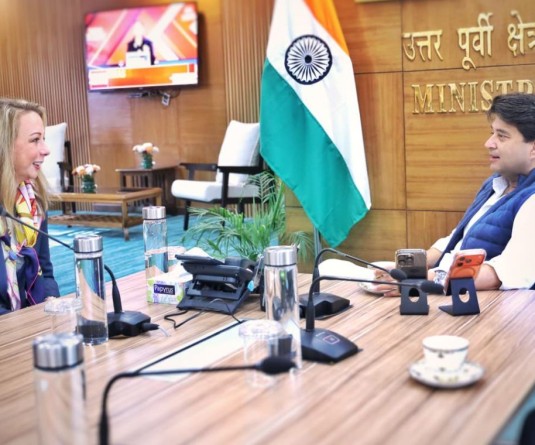IANS Photo

New Delhi, October 29 (IANS) Apple’s newly launched hearing health features on its AirPods Pro aims to minimise exposure to loud environmental noise and track even moderate hearing loss, the company said on Tuesday.
The world’s first innovative and end‑to‑end hearing health experience was created at its Audio Lab -- in Cupertino, California -- where all Apple products with speakers or microphones are designed, measured, tuned, and validated.
The new features, which aim to address the hearing concerns of all persons, were tested by acoustic engineers in the Lab's anechoic chambers which completely absorb reflective sounds and isolate external noise.
The new hearing feature is currently available as a free software update and provides Hearing Protection and tracking of hearing with an at-home Hearing Test. One can also receive assistance for perceived mild to moderate hearing loss using AirPods Pro which acts as a clinical-grade Hearing Aid, the company said.
“Every person’s hearing is different, so we created an innovative, end-to-end hearing health experience that addresses this variability in a way that’s both simple to use and adaptable to a wide range of needs. That’s especially important because hearing loss affects people of all ages with different levels of tech-savviness,” said Sumbul Desai, Apple’s vice president of Health.
The Audio Lab consists of a longwave anechoic chamber and a Fantasia Lab.
The longwave anechoic chamber, with a custom-built loudspeaker and microphone, enables accurate sound measurements without any noise or vibration disturbances. It also can measure how sound interacts with the human body.
The Fantasia Lab is a tightly controlled, evenly distributed sound field. It uses a spherical array of 50 loudspeakers to simulate hundreds of real-world sound scenes like a shopping mall, a busy street, or travel on an aeroplane.
To develop the latest hearing aid feature, Apple conducted a study including participants with a wide range of hearing levels to complete a speech-in-noise test.
The participants had to hear and accurately repeat the words of a single speaker while sitting in the middle of the space while a complex sound scene, like a noisy restaurant, played.
The engineers also worked with audiologists in the Lab’s three clinical-grade audiometric booths to conduct thousands of clinical-grade audiometry tests and software-based hearing tests.


.jpeg)



